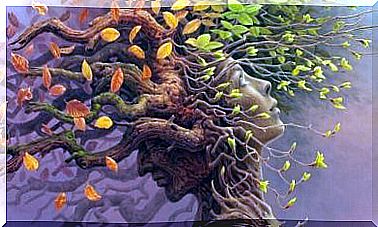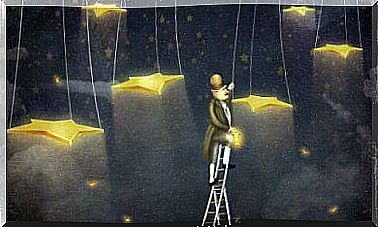Be Inspired By Sunflowers, Who Always Seek The Light

Get inspired by sunflowers and imitate their vital nature, which forces them to always seek sunlight to nourish themselves, to grow in beauty and strength. However, also remember that your authentic light is not on a distant star. Your true sun is within you, so look for it, listen to it and follow your instinct.
The folklore built in many of our cultures around sunflowers is made up of very interesting and magical components. They are often associated with truth, honesty, and loyalty. It is also said that if at any time we have doubts about something, it is enough to take a sunflower from the field at dusk, and then place it under our pillow. That way, when we wake up in the morning, we’ll be sure what to do.
However, this positive tone loses its intensity a little when we move to Greek mythology. According to classical legend, a young water nymph – named Clytie – fell head over heels in love with the god Apollo and the light he gave off whenever he passed over her with his chariot of fire across the sky. She admired her strength and her beauty, but the god never paid attention to her.
The days passed, gave way to months, and months to years…until Clytie lost her nymphal appearance to start taking root, to sink into the ground and let petals of golden color come out of her pretty face. The time and loyalty of her fruitless love had turned her into a sunflower, into a beautiful creature dedicated only to following with her gaze the object of her impossible love: Apollo.
In some situations, as this legend suggests, we focus our goals and desires on impossible goals. So, we need to be able to attend and turn on this other light capable of guiding us much better: the one that has its roots within us.

Be like sunflowers: the search for the best opportunities
Life takes many turns, the same ones that sunflowers take on themselves following the sunlight, fulfilling their magical nature based on phototropism. Despite this, it is clear that people do not have this natural instinct inscribed in our DNA capable of driving us to this positivism, to the horizon where new opportunities are opened, the changes that will make us grow or the proposals that it is convenient to initiate to improve, to be happier.
The human being, so to speak, must move each day through a field full of seeds of uncertainty and weeds of fear. No external star guides us, therefore, we are almost obliged to turn on an internal light with which we can guide us along paths where nothing is guaranteed, where nothing is safe or feasible. However, with the power of dreams and perseverance, we managed to pull our roots out of the comfort zone to start new trajectories and projects full of expectations.
On the other hand, Richard Wiseman, psychologist at the University of Hertfordshire and author of interesting books such as “59 Seconds – Think a Little, Change a Lot” and “The Luck Factor” explains precisely in this last book the importance of the internal emotional state at the time. of “attracting” or avoiding luck. Far beyond the existence of a magical component, what actually exists is a kind of attitude and mental openness to opportunities, to focuses where casualness and even serendipity work in our favor. Let’s see in more detail below.

You are your own luck: turn on your light
Elizabeth Nutt Williams, professor of psychology and researcher at the University of St. Mary in Maryland, United States, conducted a very interesting study on the “luck” factor. She was trying to find out what factors and what psychological characteristics define people who are more likely to experience serendipities : the unexpected lucky breaks that we often link to the force of fate or even magical thinking.
It was possible to demonstrate, for example, that these profiles linked to luck score higher in openness, in resilience, in problem solving, positivism, self-confidence, innovation and creativity. In addition, they score lower on neuroticism or on the tendency to experience negative emotional states such as anxiety, anger, guilt, or anger.

We could conclude from this that to be our own luck and turn on this light, which as a beacon should guide us to authentic well-being and adequate personal satisfaction, it is necessary to focus on life from a more relaxed perspective. Dimensions such as cognitive flexibility or the ability to differentiate what suits us at each moment can undoubtedly help us to reorient our “personal antennas” in search of more fertile horizons.
Let’s avoid being like the nymph Clytie, because as poetic as her story seems to us at first, it is a clear example of someone who focused all his energy, emotions and vitality on something impossible. Let’s be sunflowers that, made of light, positivism, joy and confidence, are able to light their own path, the one that will lead us to true happiness.
Images courtesy of Veronica Minozzi.









